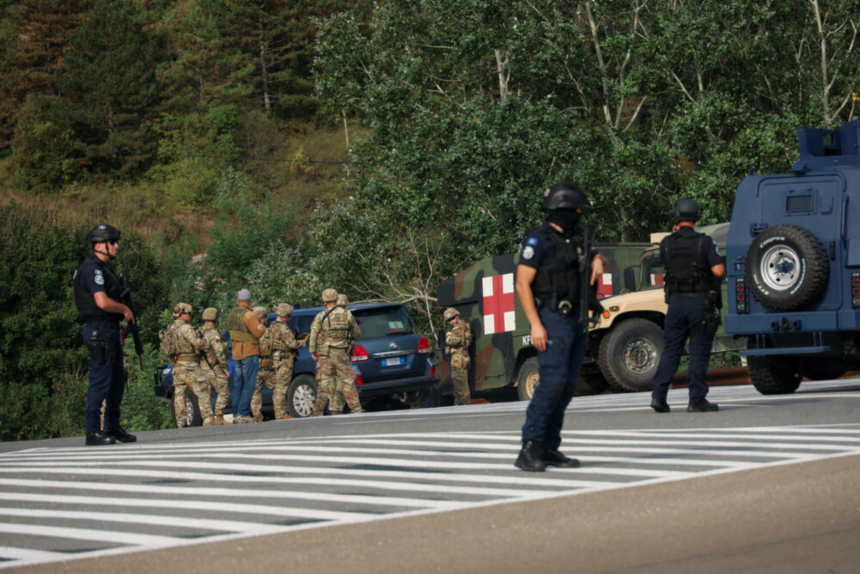Multiple risks are foreseen in Kosovo and Bosnia-Herzegovina if there is no increased engagement from the European Union and NATO, according to a report from the NATO Parliamentary Assembly. The lack of normalization in relations between Kosovo and Serbia is mentioned as the most challenging issue for the Western Balkans region.
The report calls on NATO and the EU to exert pressure on Kosovo and Serbia to implement the Basic Agreement and the Ohrid Annex.
Incidents in northern Kosovo are seen as an alarm bell for the international community regarding the seriousness of the ongoing challenges in the Western Balkans, the NATO Parliamentary Assembly’s end-of-year report states.
The author of the report, Lord Mark Lancaster from the United Kingdom, highlights the causes and current drivers of the region’s main security challenges.
Kosovo, alongside Bosnia-Herzegovina, is considered to have high potential for violence due to ethnic issues and relations with Serbia.
“2023 witnessed a significant resurgence of violent confrontations in northern Kosovo. The incidents served as an alarm bell for the international community about the seriousness of the ongoing challenges in the Western Balkans. In a region where nearly all states and territories are seeking a Euro-Atlantic future, unresolved issues in both Kosovo and Bosnia-Herzegovina must refocus the attention of the Allies: Allies must come to terms with the broader destabilizing potential these challenges represent,” the report, titled “Western Balkans: General Security Challenges on NATO’s Doorstep,” states, according to KOHA.
The lack of progress in normalizing relations between Belgrade and Pristina is considered the most challenging and unstable issue in the region.
“It has immediate and significant implications: it prevents both countries from advancing their EU membership processes, is a major factor in regional instability, an obstacle to closer and more effective regional economic cooperation, and a contributor to power vacuums that create opportunities for criminal networks to exploit the region as a route, arena, and zone for trafficking arms, drugs, and people,” the report notes.
According to the document, at the heart of the Kosovo-Serbia dispute are two main issues: Serbia’s non-recognition of Kosovo and the approach of the Kosovo Government in the northern municipalities, which are predominantly Serb-populated.
In reference to the risks, the report also recommends that NATO consider increasing its troop presence in Kosovo and Bosnia-Herzegovina.
“The presence of NATO forces in Kosovo could still be reinforced given the evolving situation on the ground and in the region. Allies and the EU could work together to provide more appropriate forces for their objectives in Kosovo and Bosnia-Herzegovina. Allies’ attention to Kosovo cannot be ignored – priority should be given to potentially more forces, positioned appropriately. KFOR’s operations play an important role that goes beyond deterring violence, as it also serves as a channel for positive contact and trust-building with all communities in Kosovo and Serbia,” the report concludes.







